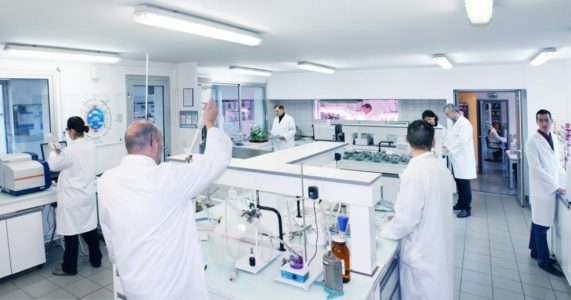Chưa được phân loại
Học bổng PhD về NMR-based sensor tại Viện INRA Pháp 2019
- Chi tiết bài viết
- Bài viết liên quan
A PhD position is available in the AgroResonance laboratory to develop a new NMR-based sensor to measure flow and water quantity in the agroecosytems, directly in their environments.
The work will take place in the NMR/MRI team AgroResonance from the French National Institute for Agricultural Research (INRA) located near Clermont-Ferrand in the centre of France. The PhD candidate will benefit from a unique research environment and will interact with scientists expert in MR but also in plant physiology and ecology.
Forest and grassland are the main perennial terrestrial ecosystems with high potential to mitigate
global warming by the sequestration of large amounts of carbon in both the wood and the soil. This
carbon storage from vegetation depends on a tight coupling between the processes of photosynthetic carbon fixation and transpiration. Root systems perform the crucial task of absorbing water from the soil to meet the climatic demand by the transpiring canopy. In the plant, the water is transported from roots to leaves by the xylem flow, sustaining essential plant functions such as growth or photosynthetic activity. On the reverse way, the carbon flow transports photoassimilates resulting from photosynthesis from leaves to the carbon sinks thanks to the phloem flow. The carbon assimilation and then the carbon sequestration potential depend on transports from both the xylem and phloem flows. With the significant increase of extreme climatic events associated with climate change, it is of the prime importance to understand and thus to measure plant water uptake and carbon flow during and after drought stress periods directly in field conditions. Unfortunately, a sensor able to measure selectively these flows or quantities directly in the fields does not exist. The objective of this PhD work is to develop such sensor.
Magnetic resonance imaging (MRI) is the method of choice to locally and non-invasively measure flow rates. These measurements have been performed on high-field MRI on model systems. To move the magnet, the magnetic field must be decreased, decreasing also the measurement sensibility. However, information on water (relaxation, diffusion) can still be measured. The team owns such device, especially designed to match the need of this project. The aim of the PhD work is to (1) demonstrate the versatility of the in-situ MRI spectrometer by performing measurements on two contrasted plant functional types: tree and perennial grass species and (2) validate the in-situ MRI method by (i) comparing MRI measurements to the existing analytical methods and (ii) inducing an edaphic drought stress to determine the method sensitivity.
Clermont-Ferrand is a dynamic student (more than 35 000) and research (more than 6 000 researchers) city. Clermont-Ferrand has been the first French city to obtain the « learning city » label from the UNESCO. The city is surrounded by aligned volcanoes (chaine des Puys) which have recently been added to the UNESCO world heritage list. The INRA centre is located inside this world heritage site.
We are looking for a candidate having good knowledge on theoretical NMR. A practical NMR experience would be an advantage. The PhD work will start on the 1st of October. Applications will be considered until the position is filled. Interested candidate should email their CV, motivation and recommendation letters to:
Dr. Jean-Mary Bonny: [email protected]
Dr. Guilhem Pages: [email protected]
Dr. Amidou Troure: [email protected]
Nguồn: Dr. Nguyễn Tấn Trung


